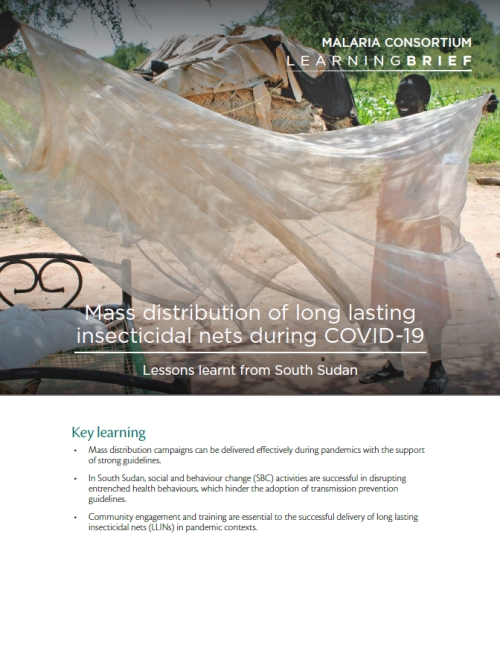Publications

Publication Date:
04/03/2021
Type:
Learning brief

Mass distribution of long lasting insecticidal nets during COVID-19
Publication Date:
04/03/2021
Type:
Learning brief

Publication Date:
04/03/2021
Type:
Learning brief
Publication

Mass distribution of long lasting insecticidal nets during COVID-19
Publication Date:04/03/2021
Type:
Learning brief
We implemented context-specific adaptions to ensure communities in Warrap state, South Sudan, continued to receive LLINs during the pandemic in 2020.
In South Sudan, long lasting insecticidal nets (LLINs) are among the most widespread and cost-effective prevention methods used to combat malaria, which remains the leading cause of morbidity and mortality. The emergence of COVID-19 threatened to disrupt LLIN provision and other essential services, prompting a review of the global LLIN distribution methodology. To ensure that communities continued to receive LLINs in Warrap state in 2020, we implemented a range of timely and context specific adaptations and amplified our community engagement and SBC activities.
Country: South Sudan
Keywords: Community delivery | SBC | COVID-19 | Malaria | Vector control | SDGs
« Back to Publications